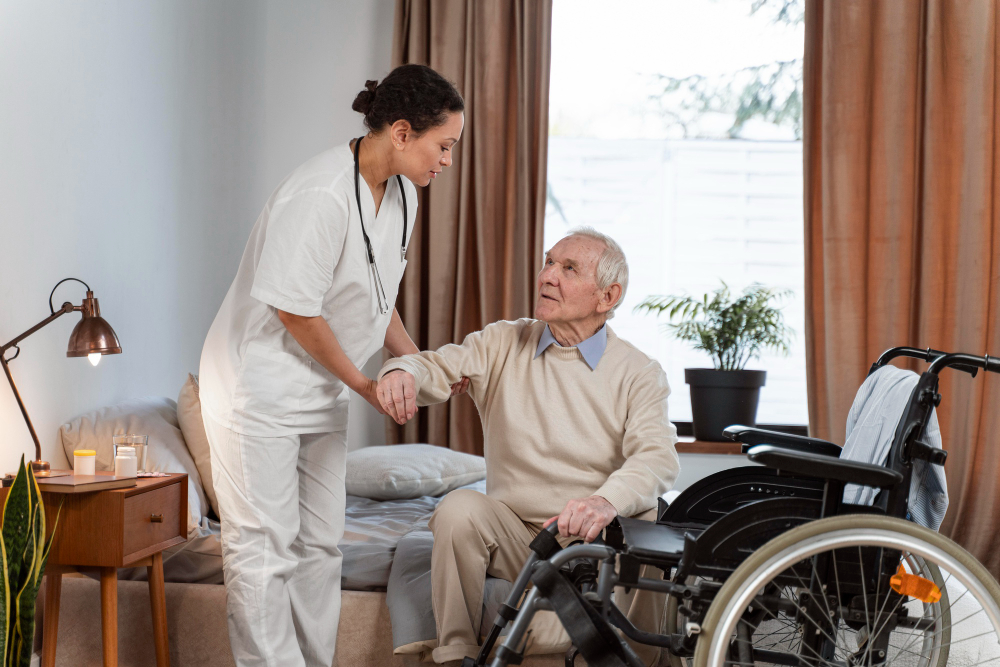Activities of Daily Living, or ADLs, are basic tasks to manage the needs for a person’s daily routine independently. These activities treat the needy people with full care, respect and assistance. A reliable Aged Care Facility works best for elders to be comfortable and safe.
Most of the time, ADLs are broken down into two main groups: BADLs (basic activities) and IADLs (instrumental activities). Each type is an important part of figuring out how much help a person may require in an Aged Care Facility.
Basic Activities of Daily Living (BADLs)
The most important self-care abilities are included in BADLs:
- Ambulating: The capacity for autonomous and safe mobility. This involves standing up from a seated posture, walking, and moving from a mattress to a chair.
- Feeding: Being capable of feeding oneself without assistance. Eating is the only activity covered here, not cooking.
- Dressing: It helps to choose and put on clothes as per the occasion and comfort.
- Personal hygiene: Grooming, hair dressing, dental checkups, nail care, and bathing.
- Bowel Disorders: Controlling the processes of the bladder and bowel.
- Toileting: The act of entering and exiting the lavatory, utilising it appropriately, and disposing of the waste.
Assistance with tasks is frequently needed in an Aged Care Facility. Seniors with cognitive or neurological conditions need assistance with these tasks, particularly.
Instrumental Activities of Daily Living (IADLs)
IADLs are challenging tasks required for independent community living. These consist of:
- Transportation
- Shopping
- Managing finances
- Meal preparation
- Home maintenance
- Managing communication
- Managing medications
- Coordinating healthcare
- Social and community interaction
- Socializing with others
- Safety and emergency response
Personnel assist residents with IADLs in an Aged Care Facility. This helps maintain a high standard of living and a feeling of belonging.
What Affects the Ability to Perform ADLs?
The following are some of the elements that can influence a person’s capacity to do ADLs:
- Ageing naturally
- Chronic or acute sickness
- Musculoskeletal, circulatory, sensory, or neurological issues
- Cognitive deterioration, like dementia
- Drug side effects
- Social exclusion
- Poor home layout or environment
Regular assessments in an Aged Care Facility can identify these difficulties early, ensuring seniors receive the necessary care and assistance.
Supporting Residents with ADLs in Aged Care
To assist an individual with activities of daily living (ADLs) in an Aged Care Facility, it is essential to:
- Honour resident preferences and autonomy
- Face and speak calmly and kindly
- Care for offerings
- Tasks require patience and time.
- Avoid crowding and maintain personal space
- Keep directions simple
- Care for their comfort
Conclusion
The best Aged Care Facility is one of the important symbols to highlight the activities of daily living. An independent person wants to achieve their dignity, well-being and support along with independence. This will enable them to follow their daily routines practically with full confidence. The choice of an Aged Care Facility will significantly improve their quality of life gently.
Just trust the services of Flinders Discount Chemist to get the top and reliable Aged Care Facility for dependent elders. Assisting with ADLs in an assisted living facility is a responsibility. It is also a dedication to improving lives with dignity and compassion.




